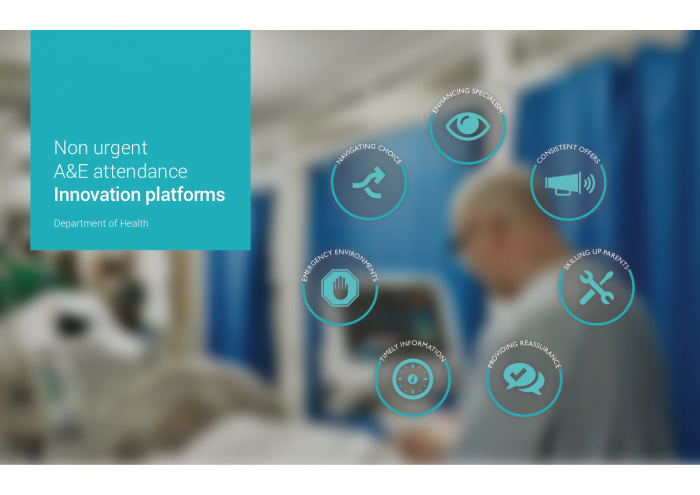Earlier this year, we were commissioned by the Behavioural Insights Team at the Department of Health to understand why parents of young children with non-urgent conditions attend A&E – even at times when more suitable options like family GPs or pharmacists are available.
Using a mix of literature reviews, local area service mapping and ethnographic depth interviews, we analysed data through the lens of various behavioural biases and principles to understand the root causes of parents’ decision-making. The overall aim was to develop a practical toolkit which could be used by healthcare professionals to identify a range of cost-effective approaches to help parents make more suitable choices when concerned about their children’s health.
The full report is now available. It reveals that – although most of those parents we interviewed agreed that emergency departments should be for emergencies only – there were a wide range of factors that ‘nudged’ them towards seeing it as a good option. Examples included the perceived additional expertise of A&E staff cued by job roles, uniforms and the visibility of ‘technical’ equipment.
We also concluded that wider social trends – notably the erosion of traditional family support networks and pressure from online social media – are making parents increasingly anxious about making a bad decision.
We’ve since used the insights to identify new opportunities to reduce the ‘non-urgent’ burden on A&E departments, including:
- Measures to enhance the perceived specialism of other health services to offset A&E’s reputation as the ‘go-to’ place for expert care
- Upskilling parents so they have more confidence in their abilities to diagnose children’s symptoms and make health-related parenting decisions
- Creating greater consistency in how alternative services are designed, delivered and packaged
We’d like to thank everyone who contributed to the project, and especially those busy parents who gave up their time to speak to our researchers. We’re hugely proud of the report, which we believe is a perfect illustration of how behavioural science can be used to make sense of complex and costly behaviours, and help clients make simple changes that have profound knock-on effects.


